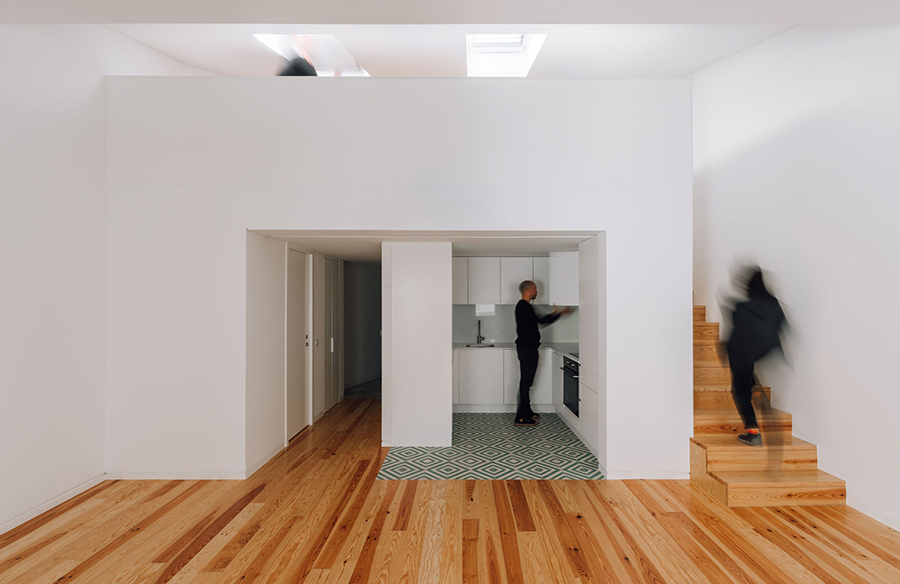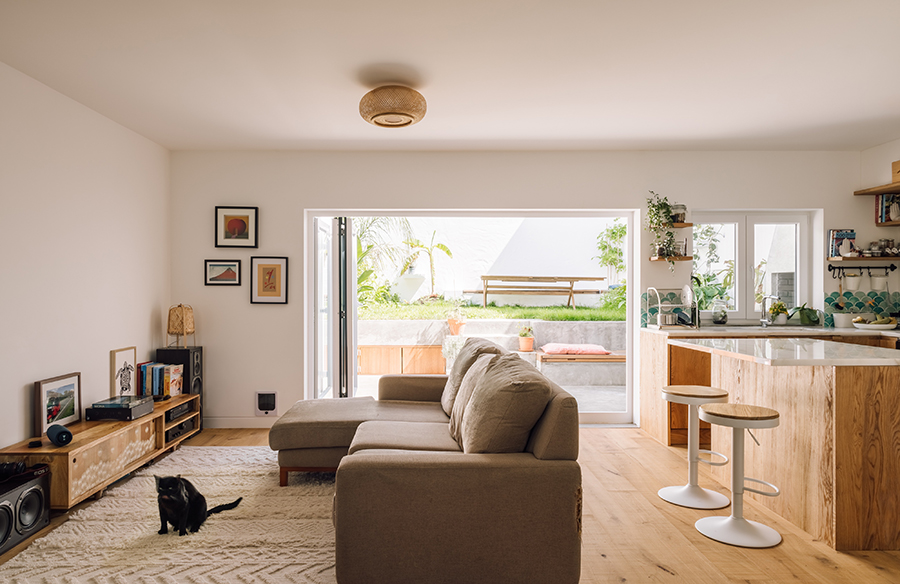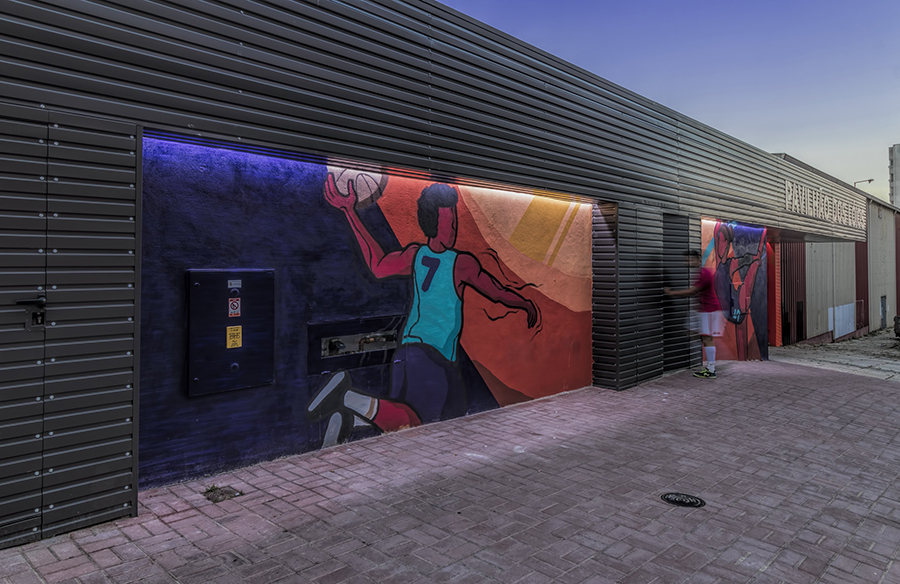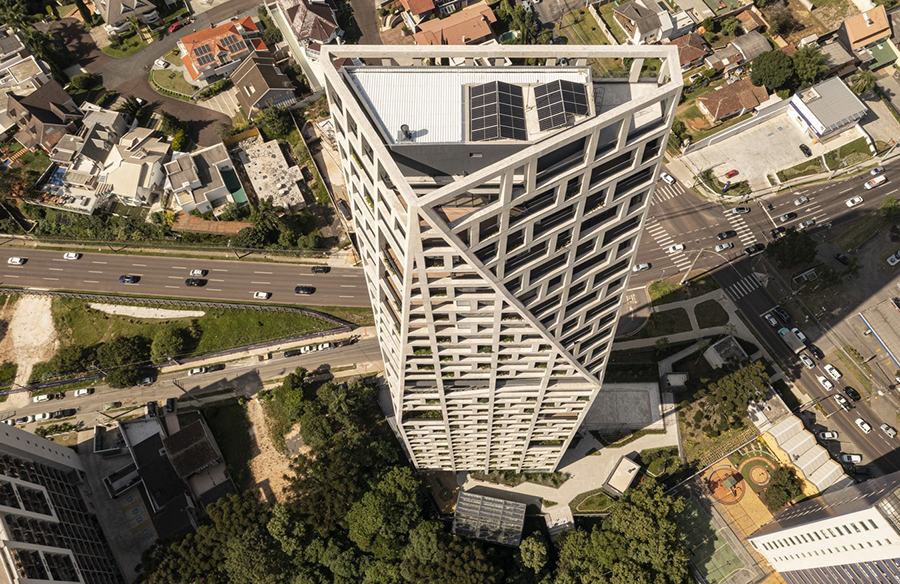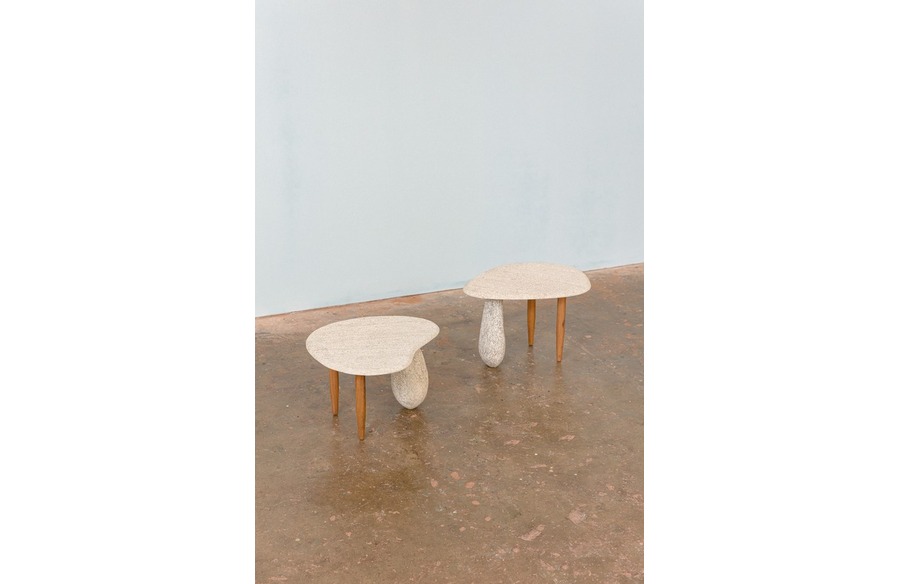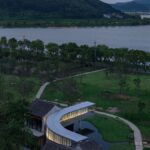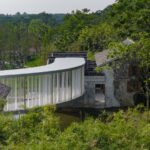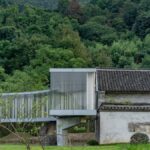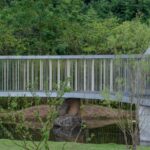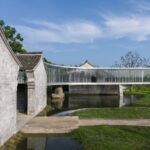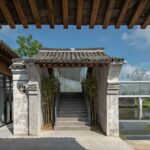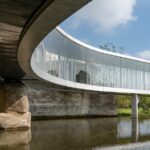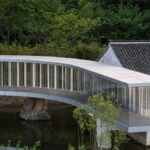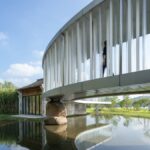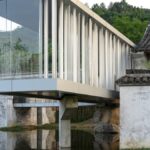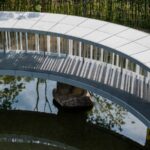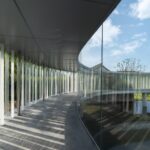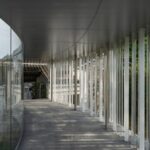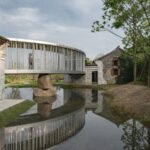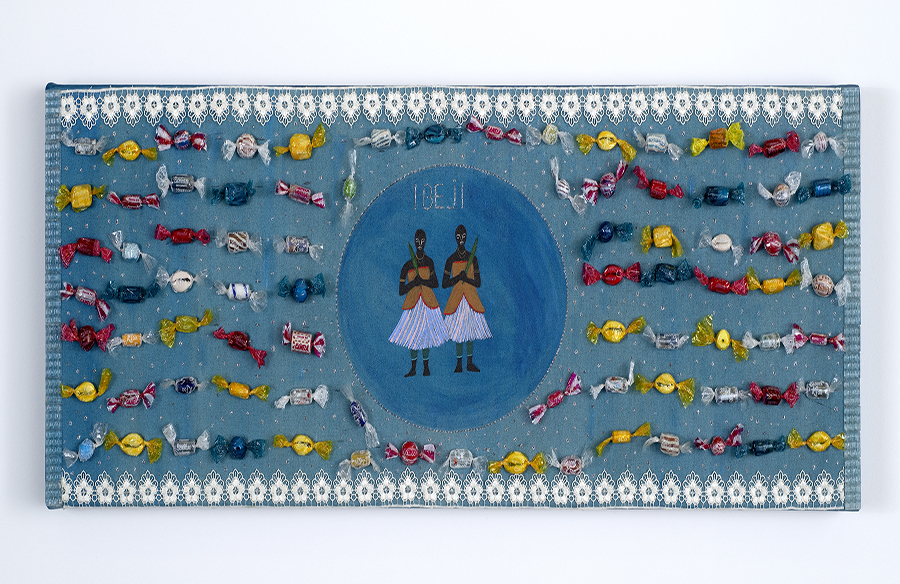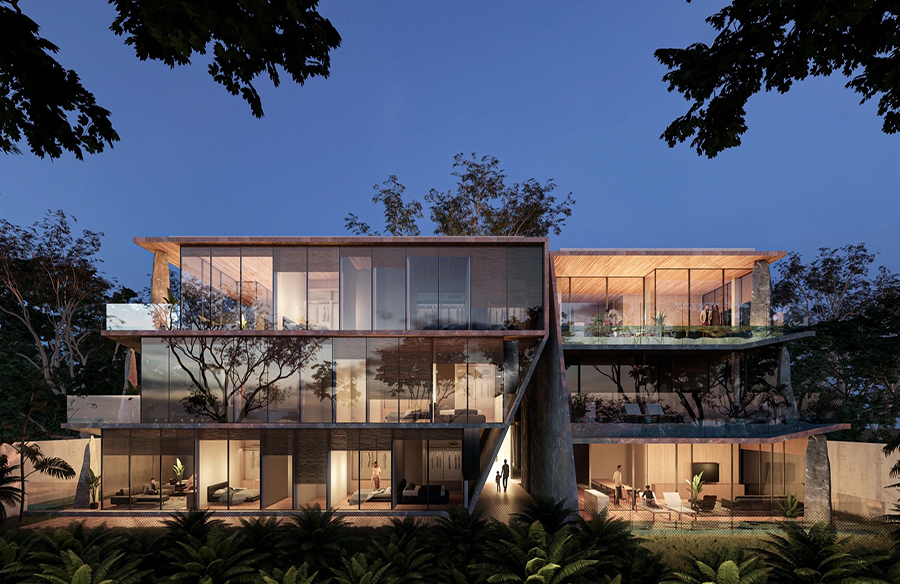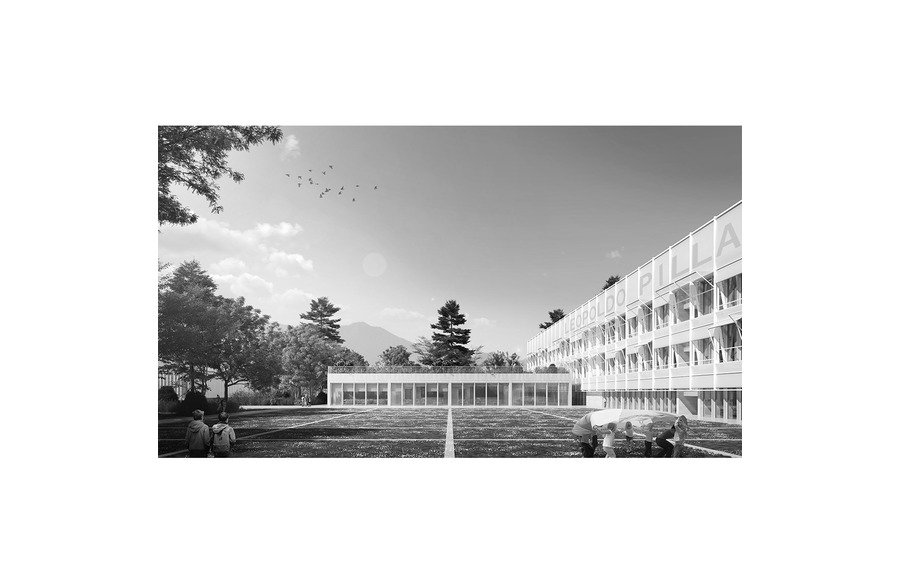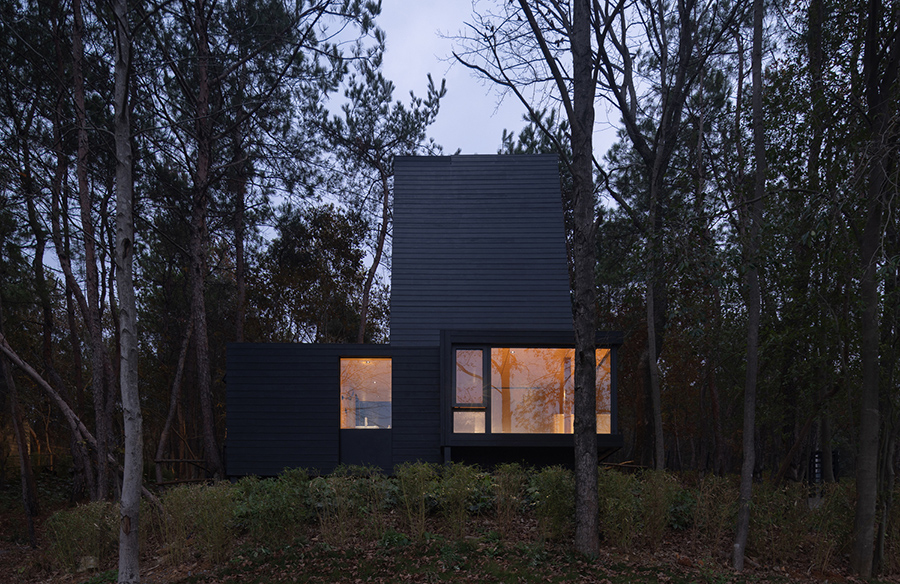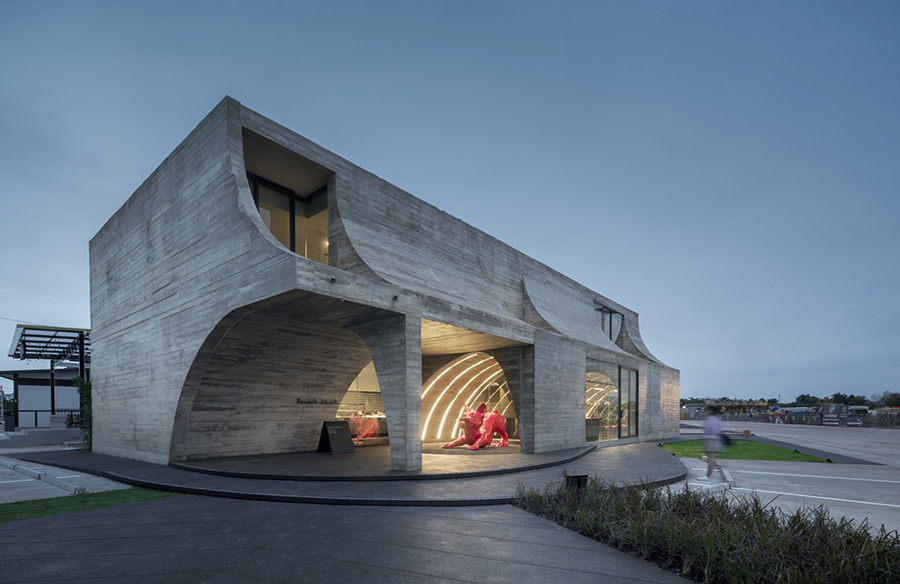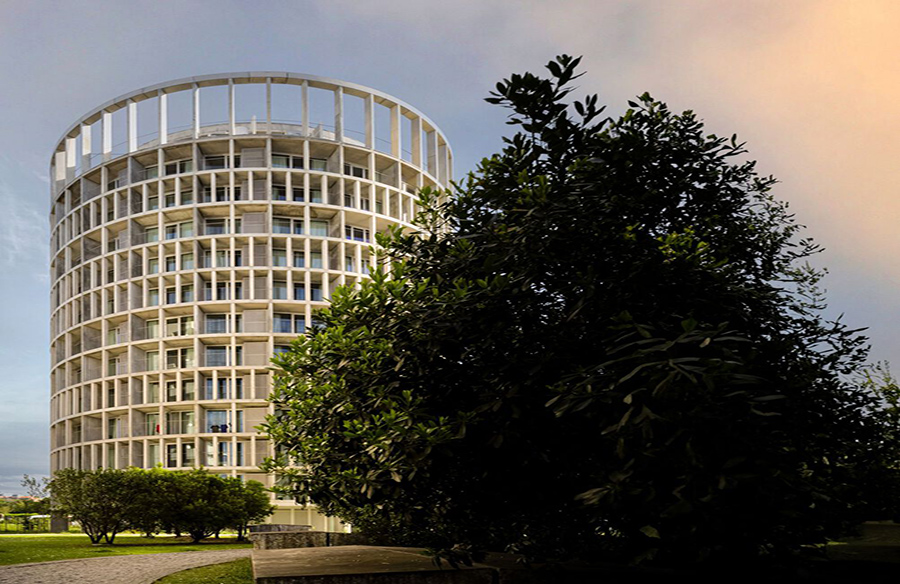Lakeside Teahouse Bridging Tradition and Modernity
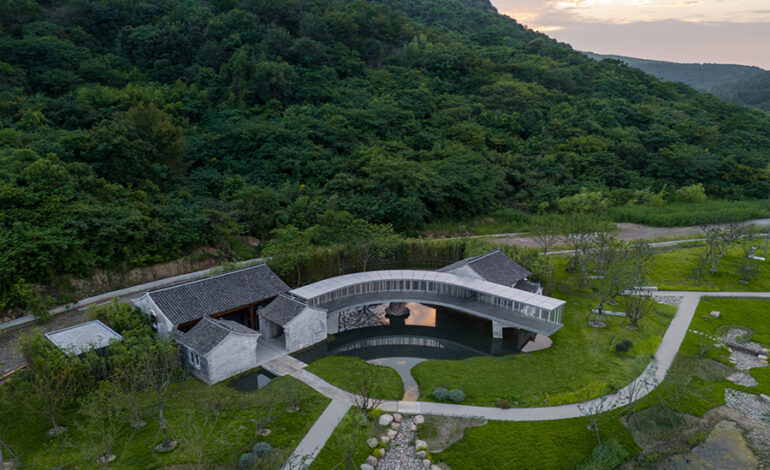
A Historical Revival
Situated in Shanghai, China, the Lakeside Teahouse project by Domain Architects breathes new life into two houses dating back to the 1930s. Positioned in front of a hill and nestled a hundred meters from the lake shore, these structures were slated for transformation into a teahouse and a tranquil retreat for tourists. Preserving the local heritage while infusing a touch of modernity became the cornerstone of this renovation endeavor.
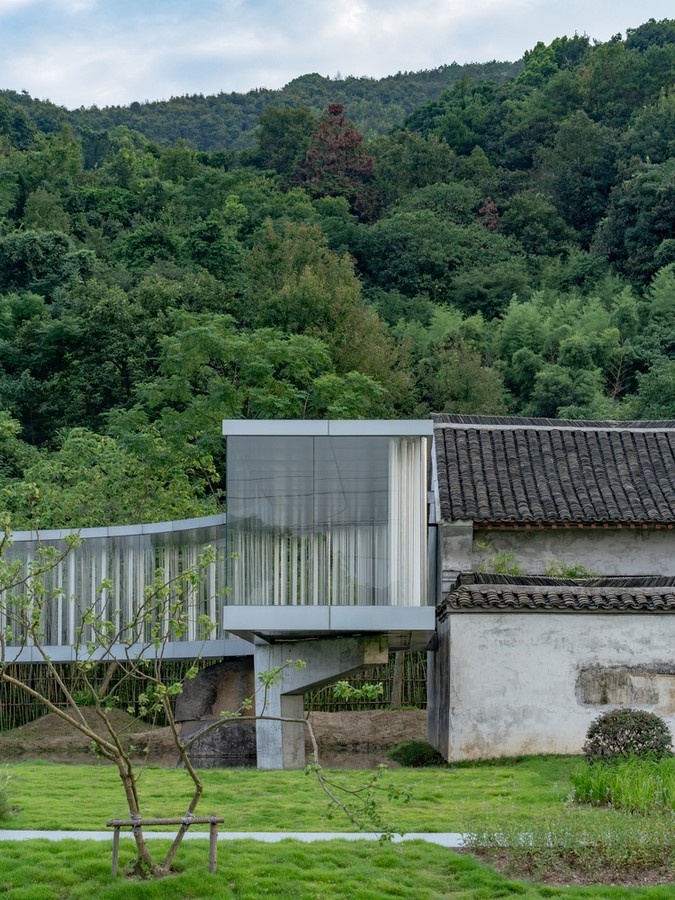
Embracing Literary Aesthetics
Drawing inspiration from traditional Chinese literati aesthetics, the Lakeside Teahouse pays homage to the scenic beauty immortalized in ancient landscape paintings. In these artworks, corridors and bridges symbolize more than mere pathways; they serve as contemplative spaces where one can pause and immerse themselves in the unfolding narrative of the landscape.
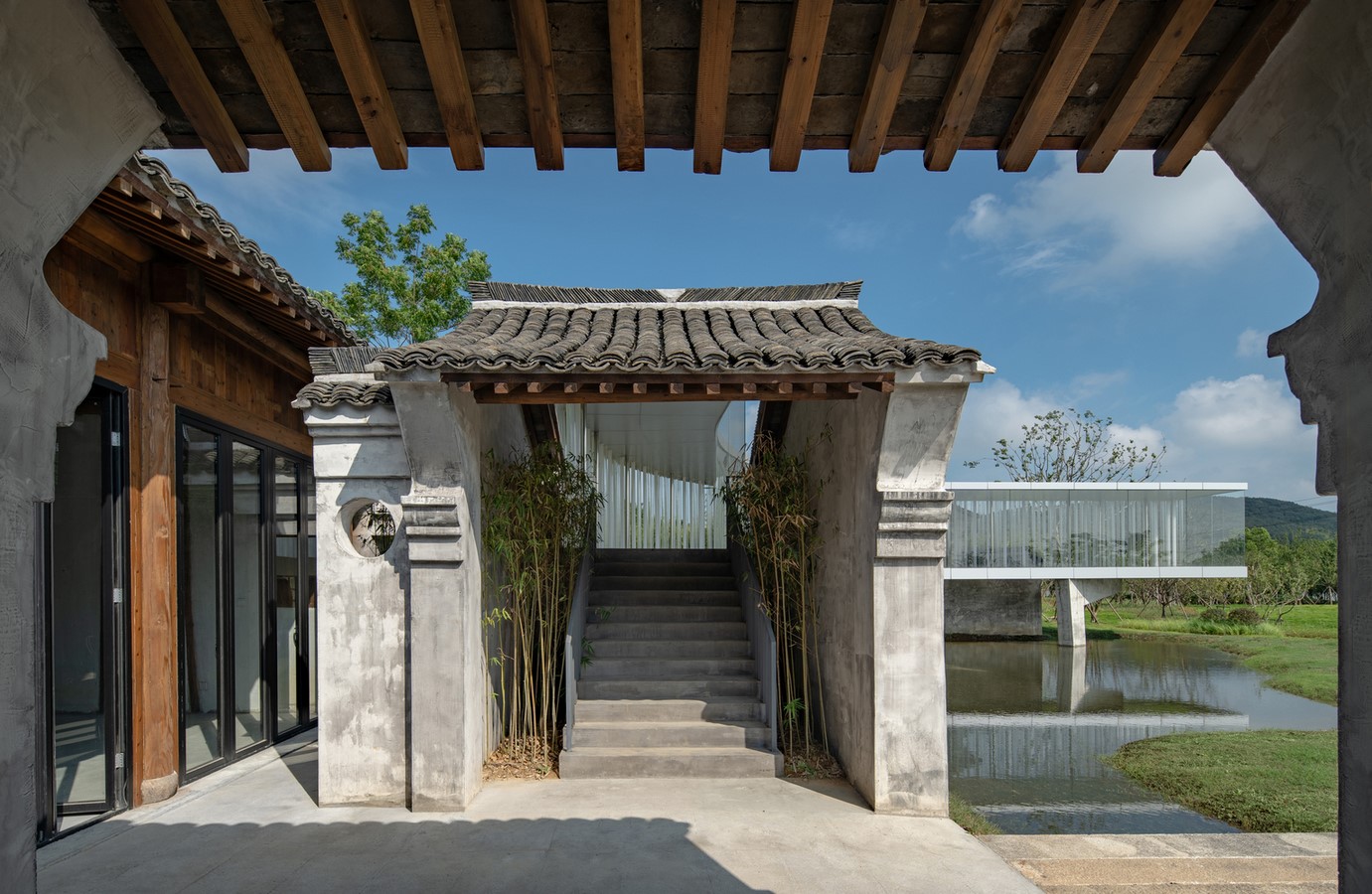
A Poetic Journey
Central to the design is a curved, elevated bridge corridor that delicately connects the two historic houses. This architectural intervention invites guests on a poetic journey, akin to unfurling a scroll painting. With fully glazed lake-facing views and a protective array of steel posts and PC tubes on the hillside, the corridor offers a captivating interplay of light, shadow, and natural ventilation.
Structural Innovation
The design ethos extends beyond aesthetics, with a focus on structural innovation. The bridge corridor, characterized by a single-sided cantilever section, maximizes views of the lake while maintaining structural integrity. Informal and non-sequential design elements, such as staircases and local stone supports, imbue the space with a sense of casual elegance.
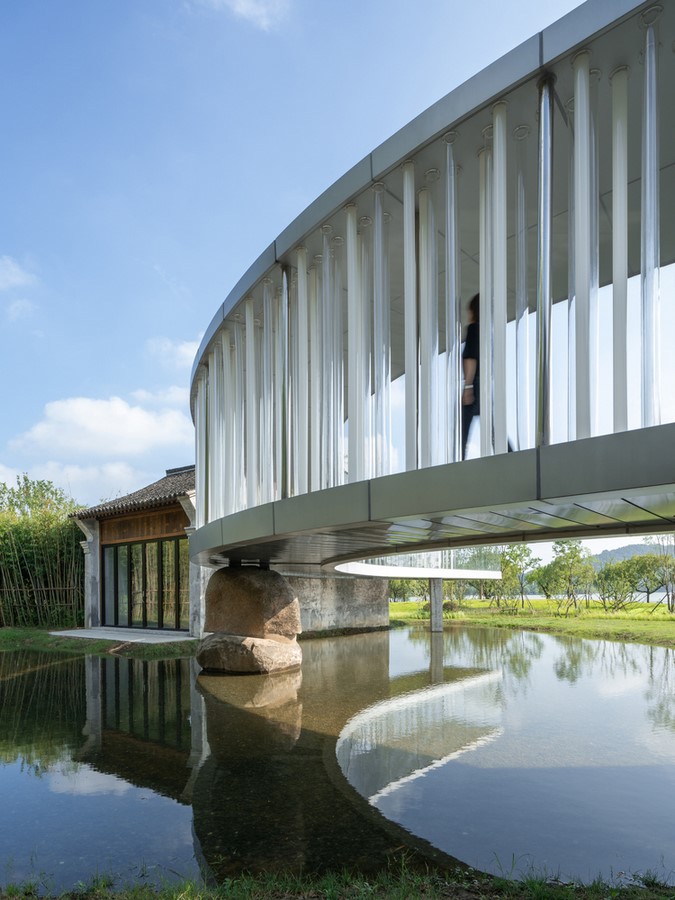
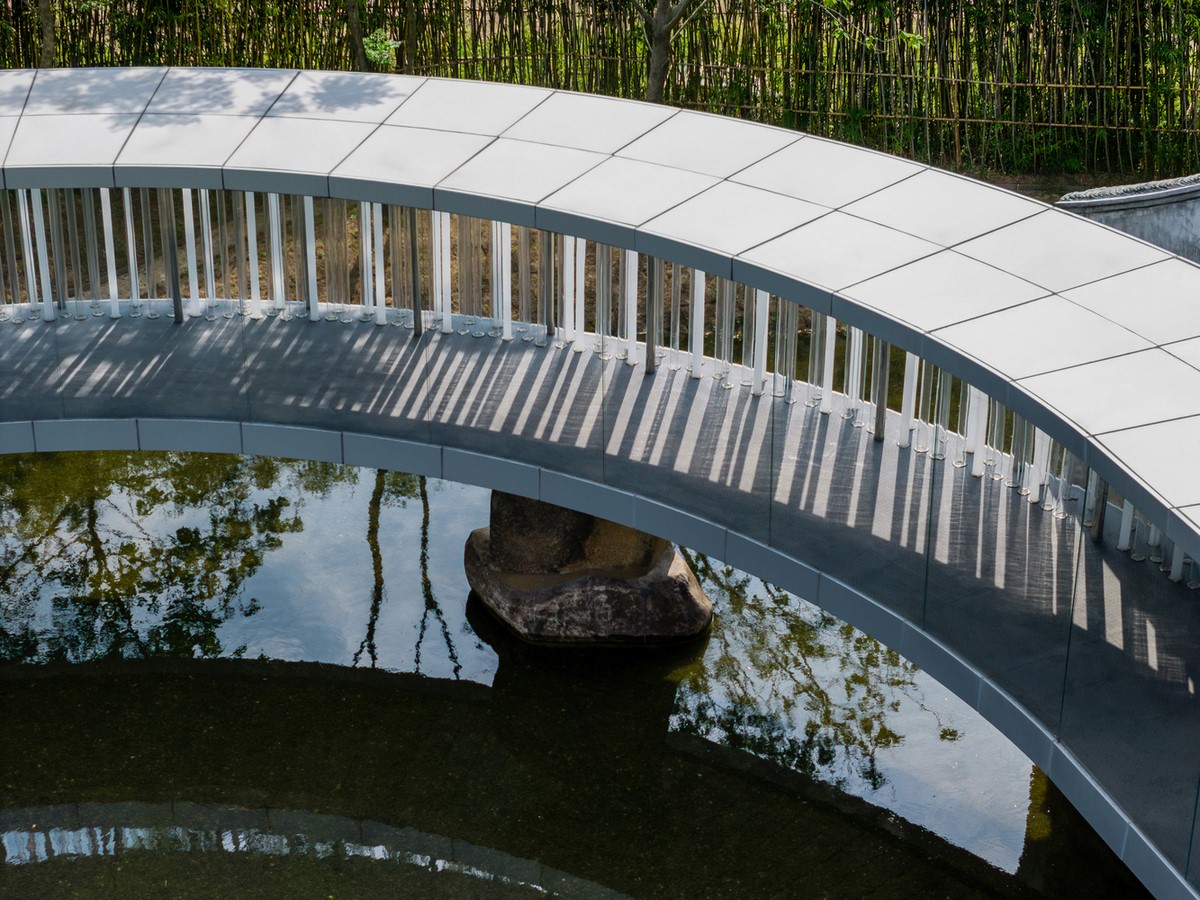
Harmonizing Nature and Architecture
Transforming the eroded ground between the houses into a shallow pond, the project seamlessly integrates architecture with nature. Stone-slab bridges, bamboo groves, and existing trees form a harmonious tapestry, evoking the serenity of traditional Chinese gardens. The steel and glass corridor, spanning both space and time, serves as a bridge between past and present, offering visitors a captivating journey through history.
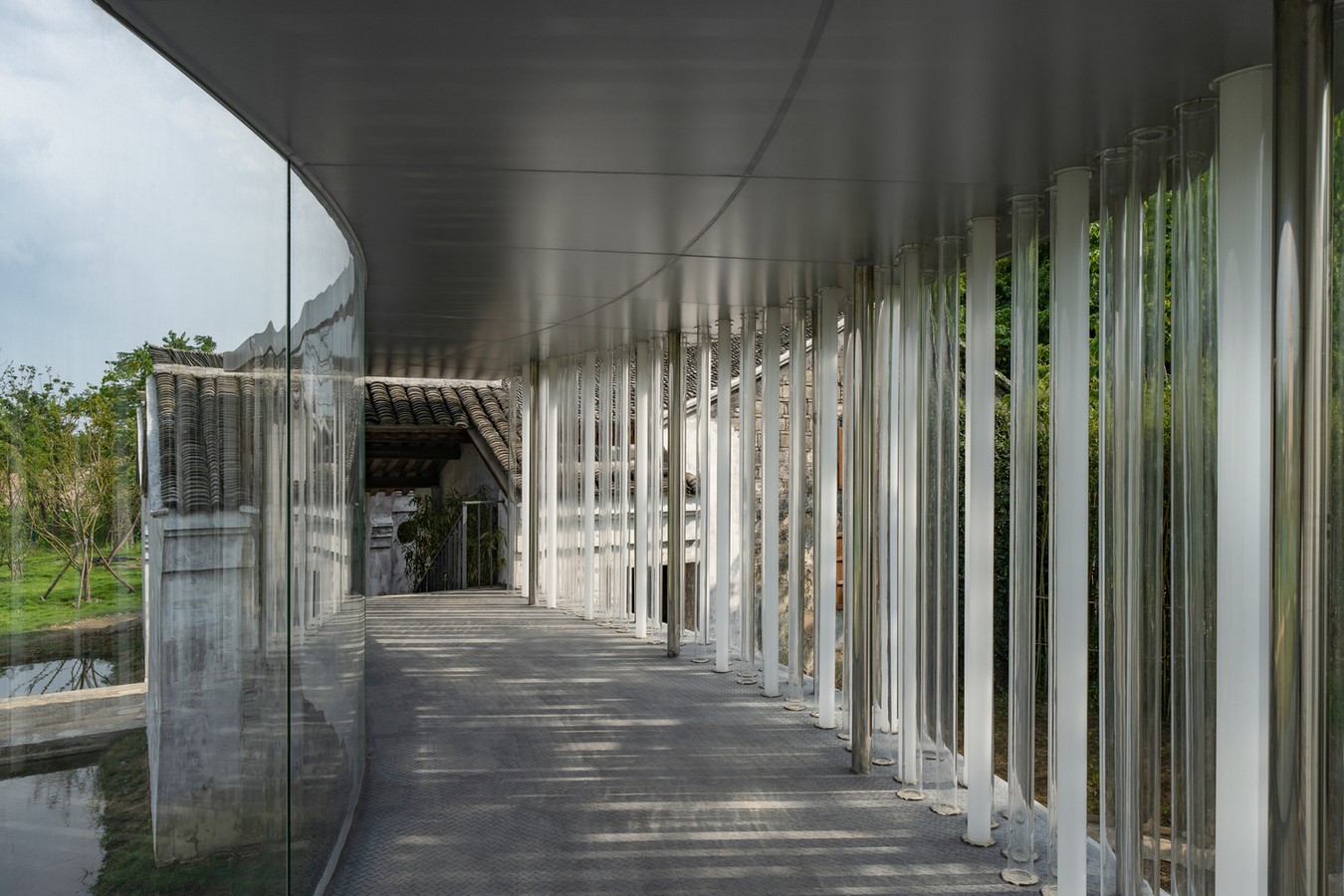
Conclusion
The Lakeside Teahouse stands as a testament to the power of architectural innovation in preserving heritage while embracing modernity. With its seamless fusion of tradition and contemporariness, this project not only revitalizes historic structures but also offers visitors a transcendent experience that transcends time and space.
